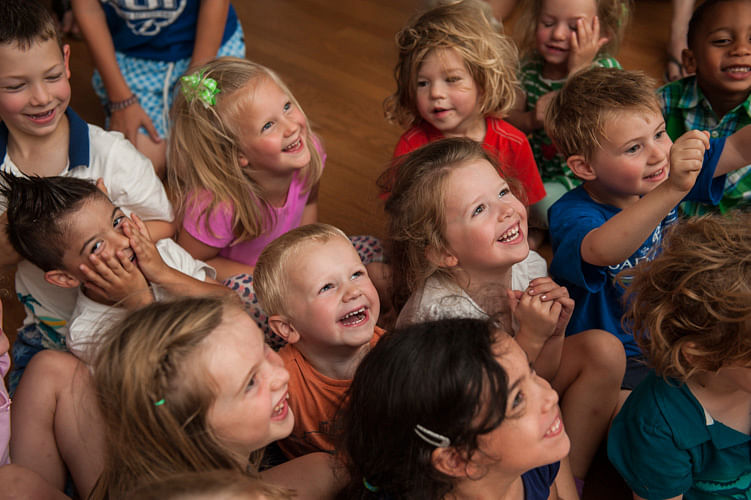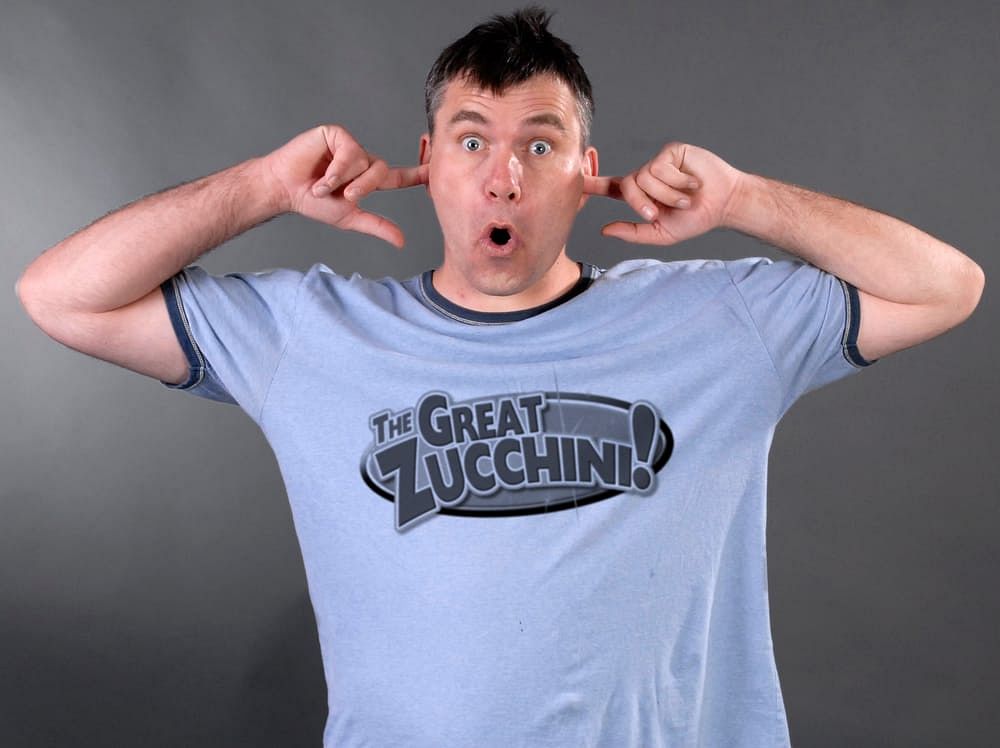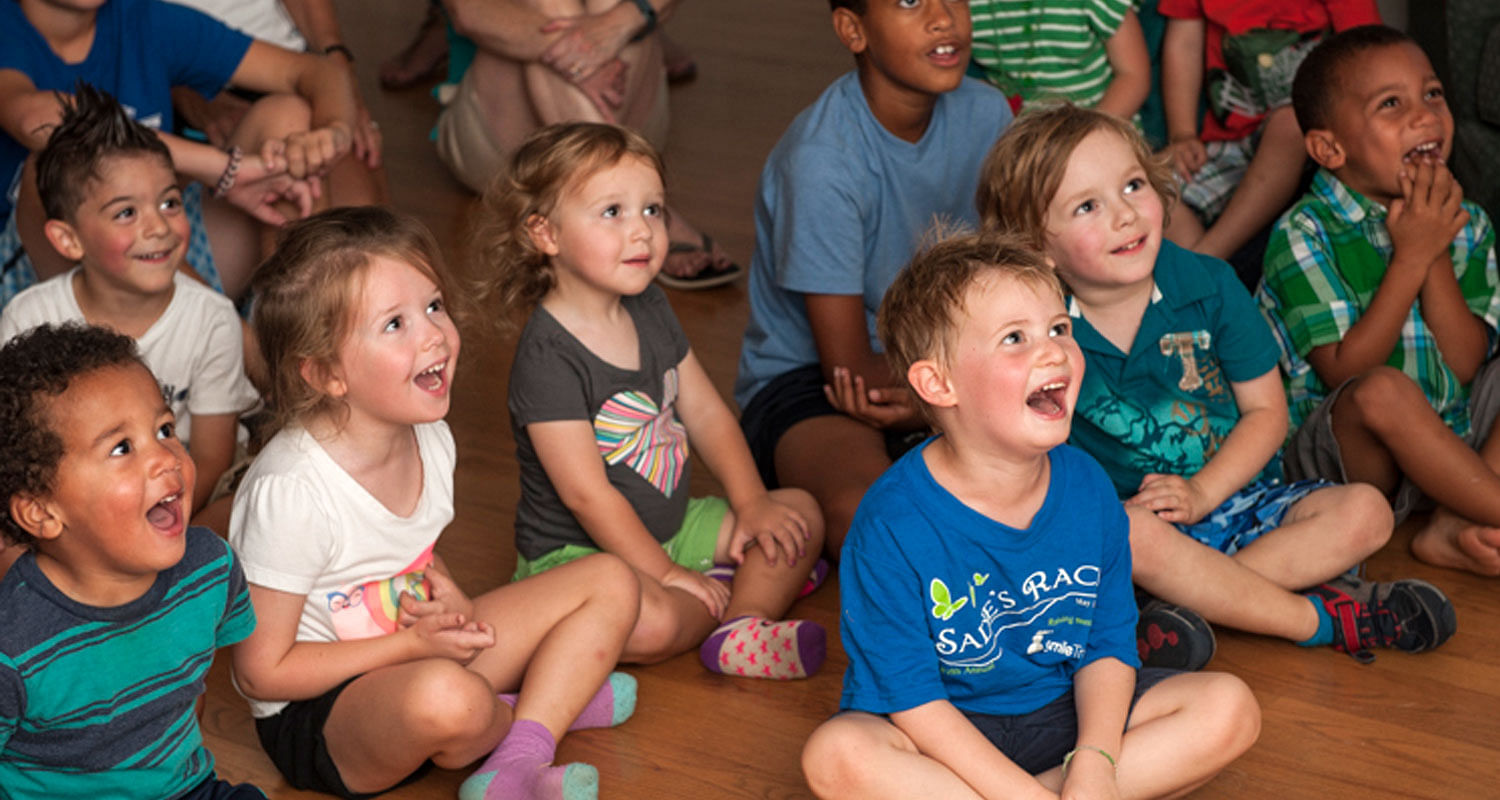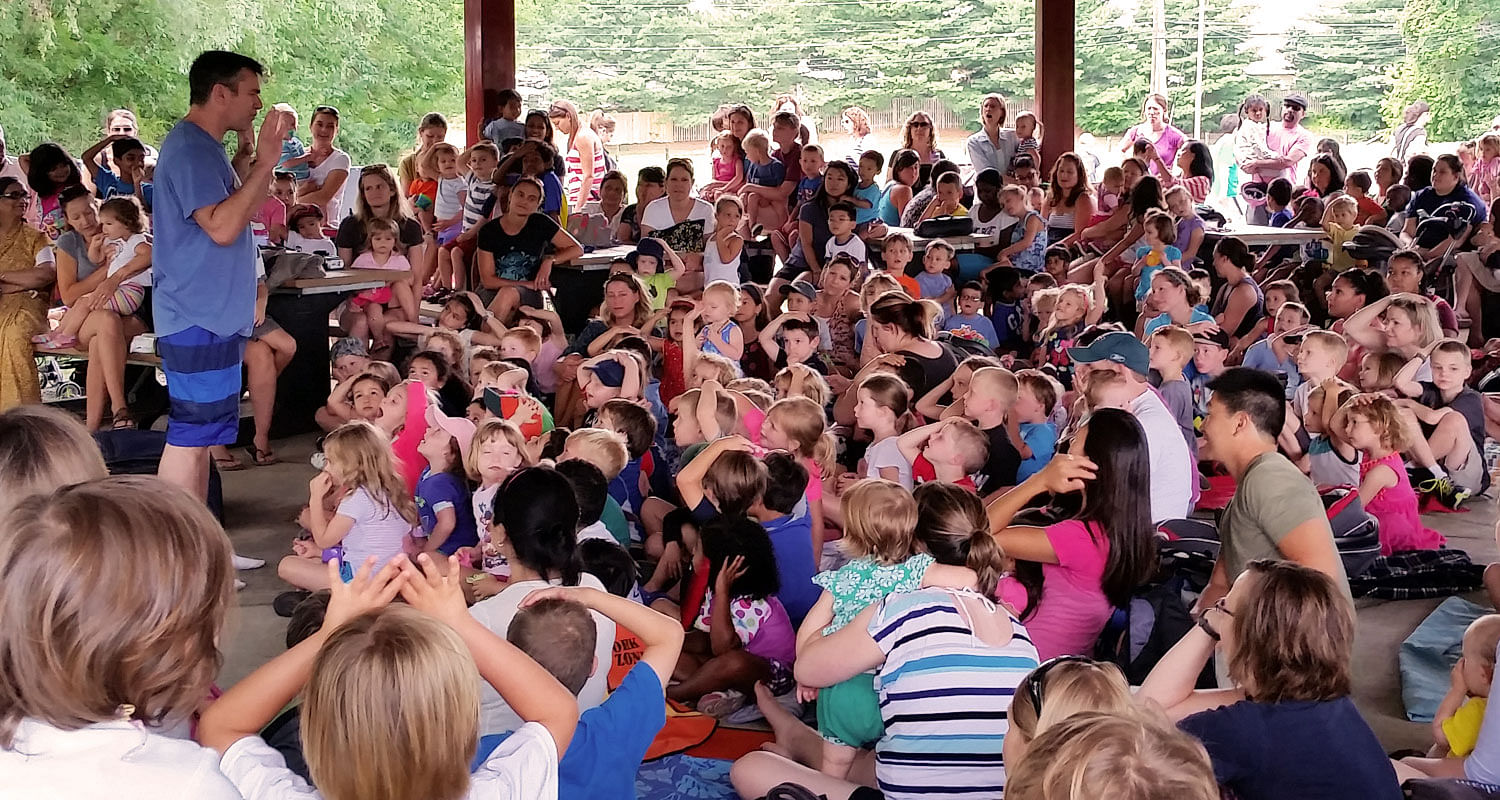The Great Zucchini
By Joe McKay - Saturday, February 27, 2021
Here is a puzzle I found online:
"Visitors to a scenic mountain village were often amused by the village idiot. When offered a choice between a shiny 50-cent piece and a crumpled $5 bill, he would always happily choose the half-dollar. The bill was worth ten times as much, so why did he never choose it?
The so-called village idiot was smart enough to realize that as long as he kept choosing a 50-cent piece, people would keep offering him the choice. If he took the $5 bill once, the stream of coins would stop rolling in."
Recently I got in touch with the legendary kid’s show entertainer, The Great Zucchini. He is based in Washington, D.C. and his real name is Eric Knaus.

He was profiled - 15 years ago - in an article for the Washington Post by two-time Pulitzer prize winning journalist, Gene Weingarten:
https://www.washingtonpost.com/archive/lifestyle/magazine/2006/01/22/the-peekaboo-paradox-span-classbankheadthe-strange-secrets-of-humor-fear-and-a-guy-who-makes-big-money-making-little-people-laughspan/6b97ebc5-1c67-4c61-8509-5baf0157cc40/
Gene Weingarten has written that this is his favourite of all the articles he has published.
There is something about Eric’s approach to magic that really intrigued me.
When a performer is authentic - spectators engage with the performance.
We are engaging audiences when we perform - not simply having them bear witness. If you do not create intrigue and have them wondering what will happen next - you are not performing magic.
Instead - you are simply demonstrating magic.
The spectator may as well be stood there in a lab coat with a clipboard in their hand, since they are now cast in the role of disinterested observer who is there to record whether or not your demonstration of magic was a success.
The Great Zucchini is focused on connecting with his audience at the level they want.
The closest I have seen to a performer like The Great Zucchini is Ricky Jay. That might seem odd since they couldn't be further apart when it comes to magic technique or magic knowledge.
Eric doesn't study magic, and he even asked me to teach him a simple mentalism trick that he can perform for parents at his shows.
The key thing that Eric and Ricky Jay have in common is their understanding of status.
When Ricky Jay died - I wrote a tribute in which I said I could understand how he achieved his tricks, but the one thing I couldn't understand was what made him such an effective performer.
Ever since reading Impro by Keith Johnstone a year ago - I have realised that life is a series of status games. The very definition of a friend is somebody who is prepared to switch status roles with you (to either laugh or be laughed at), since they are so comfortable in your presence that they no longer care about competing for status.
So how does this relate to Ricky Jay? Well - it can be summed up in a single word.
Actually, two words.
Pachydermous hide.
Those two words represent the invisible red thread that tied together the magic of Ricky Jay. Rick Jay used magic to portray a high-status character that appealed to the intelligentsia of New York.
And it worked: https://rickyjay.com/newyorker.htm
That status transaction was at the heart of Ricky Jay’s performing style.
The Great Zucchini has a similar understanding of status. Except he wants to connect with kids by portraying himself in as low-status a way as possible. He doesn't want to appeal to the New York intelligentsia. He wants to appeal to the preschoolers of the Washington DC area by being as silly as possible.
Eric’s casual clothes serve him in the same way that Ricky Jay’s smart suit did.
Eric has the confidence to do this because he is actually a high-status figure when he arrives at somebody’s home. He is an in-demand performer who regularly sells out theatre shows and is used to having 400 people waiting for his arrival at library shows. He performs regularly for the CIA, the NSA, the White House, the vice-president, and many very wealthy families.
He is a cult figure in the Washington D.C. area - so his arrival at a show has a very different feel compared to the usual kid’s show entertainer. When he arrives he knows he is not there simply as hired help.
Eric is the dumbest person in the room when he performs. He wants the kids to connect with him and feel comfortable enough to laugh at him.
How the kids perceive him is different to how the parents perceive him.
Eric is a big fan of Bruce Springsteen. He tries to communicate the everyman persona of a guy who is simply there to deliver a great show. He is casual, relaxed and friendly in his interactions with people.
Springsteen once said that the reason he puts so much energy into each of his shows is because there is always at least one person there who will be seeing him perform for the first time.
Eric carries himself with the quiet confidence of somebody who knows he is good. But he does not alienate people with this confidence. Just as with “The Boss” - the only thing he cares about is putting on a good show.
Eric is a natural salesman. He sells the benefits, not just the features. He is not just selling a show - he is inviting people into a relationship. He becomes the cool fun uncle that the kids look forward to seeing again.
After each show - he spends 15 minutes hanging out with the parents. He becomes a human being they can relate to. He is a friend of the family who is there to eat cake, discuss sports and join in the fun.
He has a connection with the people that he performs for that he does not see present in the work of others.
His show is focused on preschoolers. I told him that a laser was powerful not because it uses a lot of energy, but because none of it is wasted. I recently read a business book that said the key to success was to ruthlessly focus on a single area where you can create the most value.

He doesn’t worry about kids outgrowing his shows, since the people he will be performing for in the future have not been born yet.
Eric wears no make-up and no costume during his shows. When you think about it - the idea that a stranger would turn up at your house, in make-up and costume, then perform for your kids and then immediately drive off is a little unsettling. People are naturally curious when they meet a magician. And if you don't make yourself personable to them - you can alienate them.
Eric is a busy performer and it is mostly repeat business. If he performs for one kid in a family - he will inevitably end up performing for all the others as well.
This repeat business means regular visits to the same home and the same family. When Eric arrives - he is there as a friend of the family.
It is about the overall experience - not just the show. If a kid recognises him in the streets - he will stop and show them a trick. If a woman cannot get tickets to his online virtual show - he will make arrangements to give her a free show. And tell her to gather up as many friends and family as possible. I pressed Eric on this and he shyly admitted that he didn’t think any other performer did as many free shows for charity as he does.
The Great Zucchini is a brand.
A brand that is focused on fun, kindness and generating goodwill. If a kid won’t eat their vegetables - Eric is happy to Skype into the next family dinner to win the kid round to the concept of eating vegetables.
His focus on being authentic means he never has to break character. He is always ready to step in and be a family friend to those who hire him.
The Great Zucchini is truly present.

The secret of his success is that there is no secret. It is just who he is. If a parent mentions their kid is about to take an exam to get their black belt in Karate - he will make a quick note. Then a few months later - before the show - he can ask the kid about the exam.
Magic is about creating memorable moments - and it can be done without a trick. Sometimes a little note on a scrap of paper is all it takes. As with Max Malini - Eric instinctively understands that preparing something a long time in advance is the best way to create a powerful moment of magic.
He is continually looking out for the small moments that will allow him to create a connection with people.
Eric cares deeply about the impression he leaves on people. If somebody leaves him a message for a potential booking - he will try and get back to them in five minutes.
And he is never late.
When approached for a profile in The Washington Post - he decided to be authentic when hanging out with Gene Weingarten. He is friends with teachers, and he has seen them hiding beers and cigarettes when they spot a parent approaching.
Eric doesn’t want to live like that. The article has now been optioned for a potential movie.
I told Eric that his approach to performing reminded me of my favourite stand-up comedian - Phil Kay.
Eric was fascinated when I told him that Phil literally walks on stage without a single idea what he is going to say. And then creates a show out of thin air. A week later - Eric told me he was inspired by the energy and charisma that Phil fills the room with.
Eric has a similar approach when performing for children. He thinks too many magicians are robotic and stiff when performing for children. There is an invisible energy in every room. He feels his job is to find a way to amplify that energy, and make it flow between himself and the audience.
His chaotic style is focused on quick gags and quick tricks. This is designed to capture the attention of a preschooler. I told Eric that when comedy bookers book a stand-up comedian for a club, they don't even bother to watch the show. All they care about is the number of laughs per minute.
If the ratio is high enough - you will be booked in as the headliner. That number is all the booker cares about. Eric's approach allows him to focus on creating energy and producing as many laughs per minute as possible. This creates a rhythm to the show that he can feed off.
Throwing away your script can open up a lot of doors. It is impossible to be on auto-pilot when you have nothing to support you. Eric was recently praised by a kid’s father at one of his shows. The father said that he had seen him perform many times, and never once felt like Eric had “thrown in the towel” on a gig.
Eric is always present during his shows. He also doesn’t have to worry about practice since the huge number of shows he does each year means he is always ready to perform his next show.
Like an NBA team playing 82 games a year. The show becomes the practice he needs to be ready for the next show.
His shows do not consist of sophisticated magic. Eric will not buy a trick or a prop if he cannot perform it by the time he leaves the magic shop.
His focus on keeping it simple and being authentic reminds me of the reaction David Blaine generated when he first burst onto the scene. Many magicians struggled to look at the magic of David Blaine through the eyes of a layperson. They were trapped in their own status games and unable to see the real magic.
How other magicians perceive him is different to how the kids and parents perceive him.
I told Eric that there is a paradox at the heart of magic that every magician has to wrestle with. The greatest trick in magic is also the first trick that most magicians buy within a week of entering their first magic shop.
The Invisible Deck.
This is why so many magicians get distracted and instead focus on status games within the magic community, rather than focusing on what the audience experiences.
And feels.
Sleights, books, downloads - it can trap us in the status game of trying to keep up with the latest and greatest, and this misdirects us from what magic is really about.
Eric’s goal is to empower the kids.

His idea of a good trick is to show a red handkerchief and then ask a little girl for her favourite colour?
Pink is the most common answer.
Eric looks disappointed and confused, and asks the kids what should he do?
They shout at him to change the colour.
He then uses a thumb tip to switch in a pink handkerchief and leave it bundled up in the little girl's hand.
The handkerchief is then shown to have changed to the freely thought of colour.
Red and pink are similar colours. So, I wonder if this creates a more magical experience (by making the contrast less vivid) than if it simply changed from blue to red (which immediately suggests a switch)?
Red to pink suggests a subtle and magical transformation.
Perhaps it is by planting this tiny seed that the memory will grow over time into a story where you saw a red silk visible change to a pink one?
That story will never grow - if the contrast is too vivid (blue to red). You have to seduce the subconscious so that the effect you want them to remember blossoms over time.
This is something that you will find in the work of Hofzinser, Malini and Berglas.
Three magicians Eric has never heard of.
"I've learned that people will forget what you said, people will forget what you did, but people will never forget how you made them feel." - Maya Angelou
Back to blog homepage
Similar posts on the blog:

